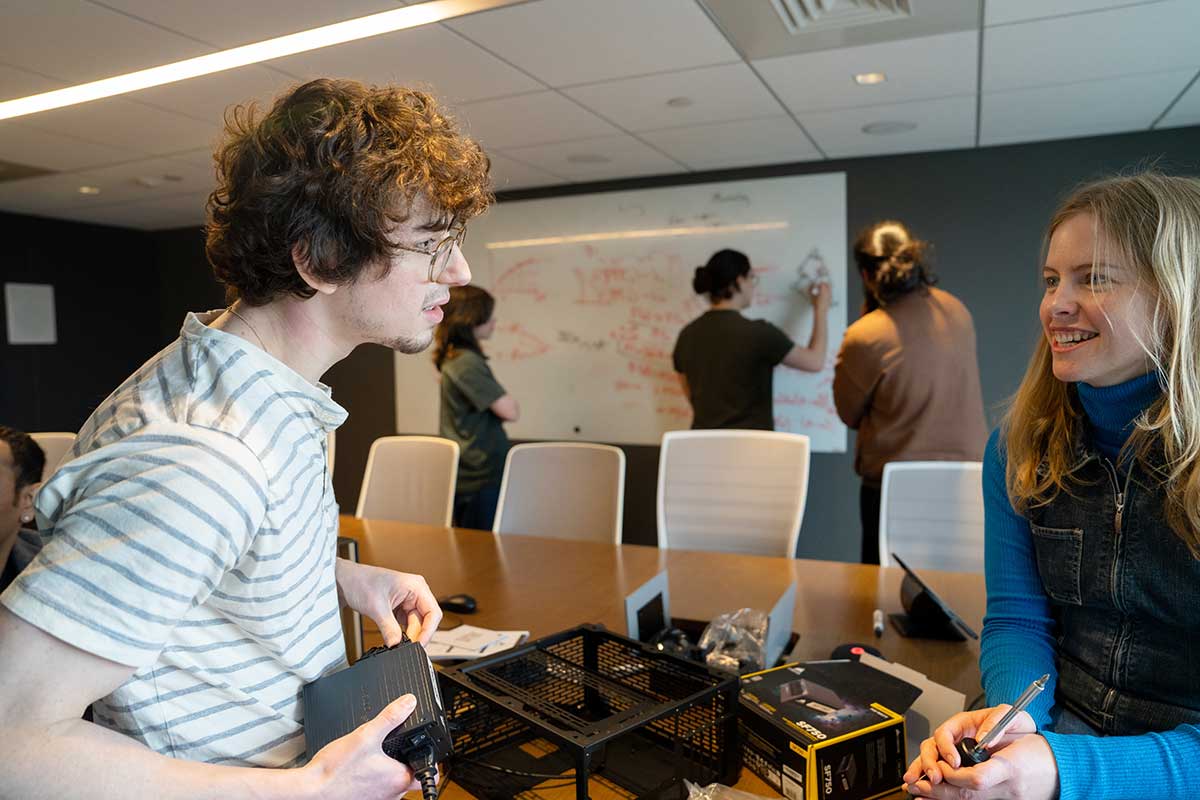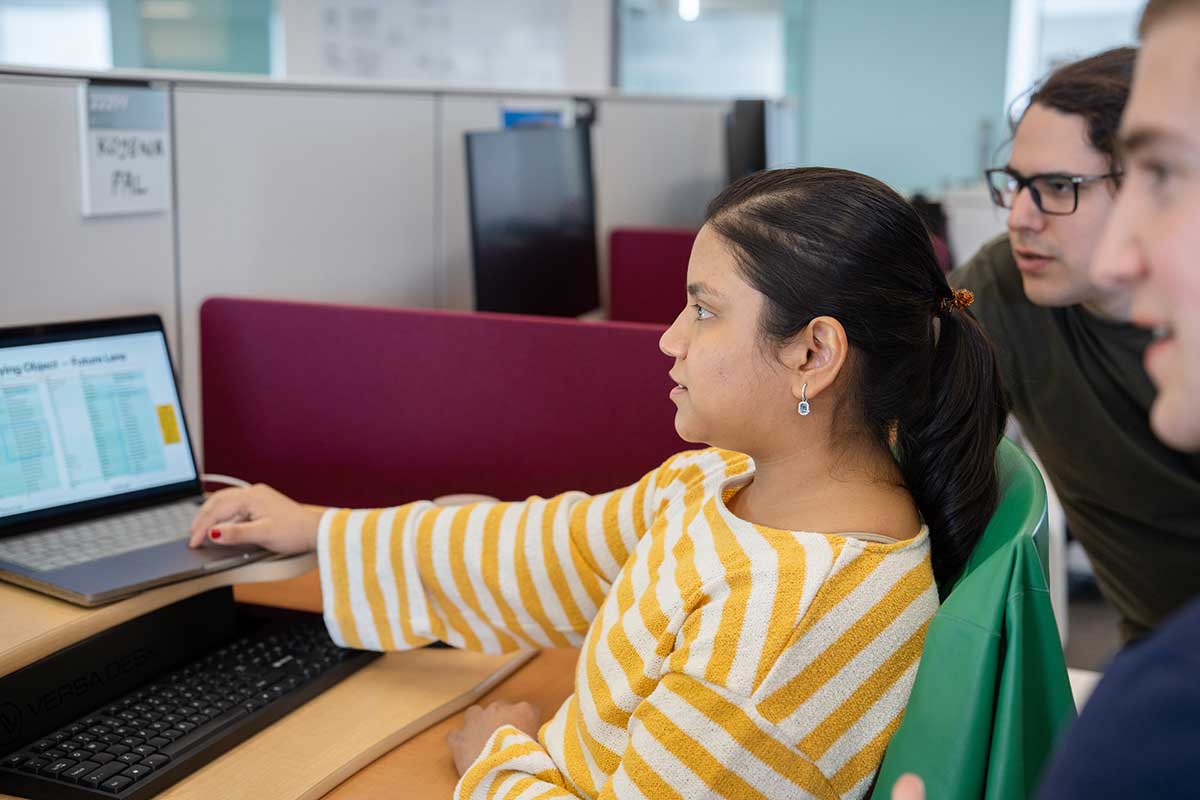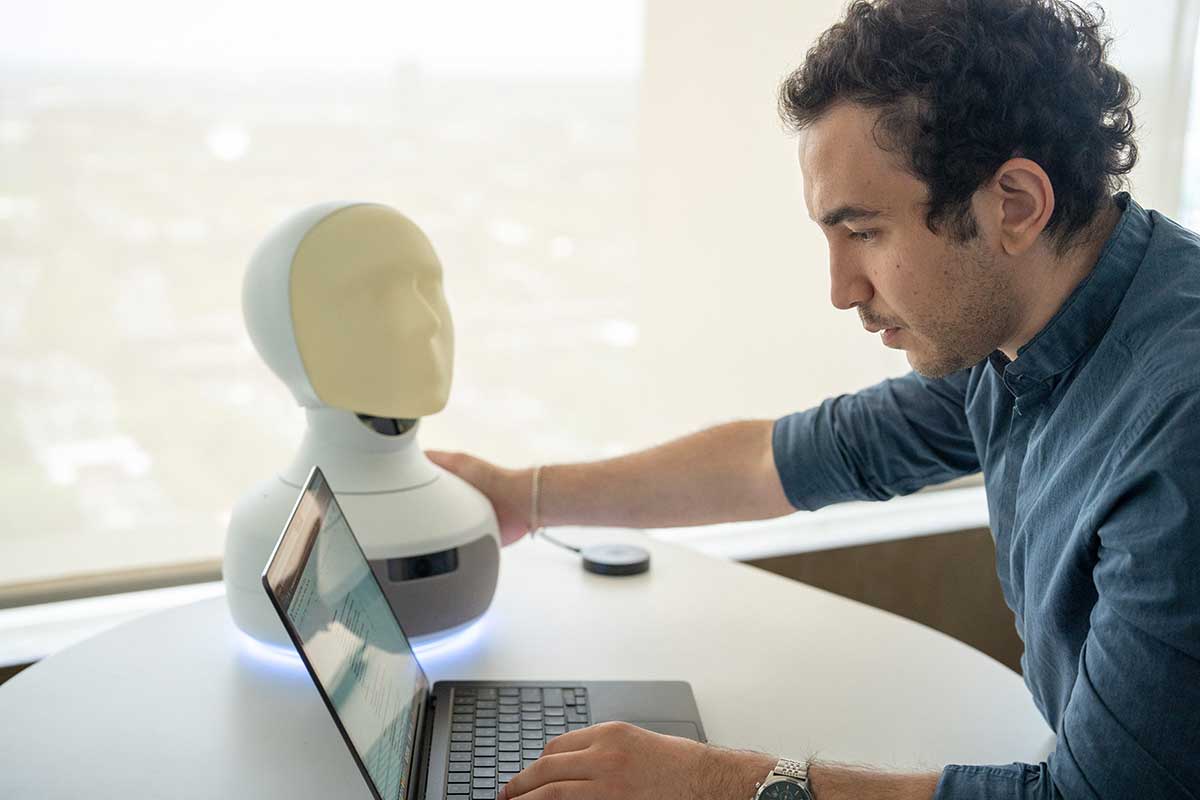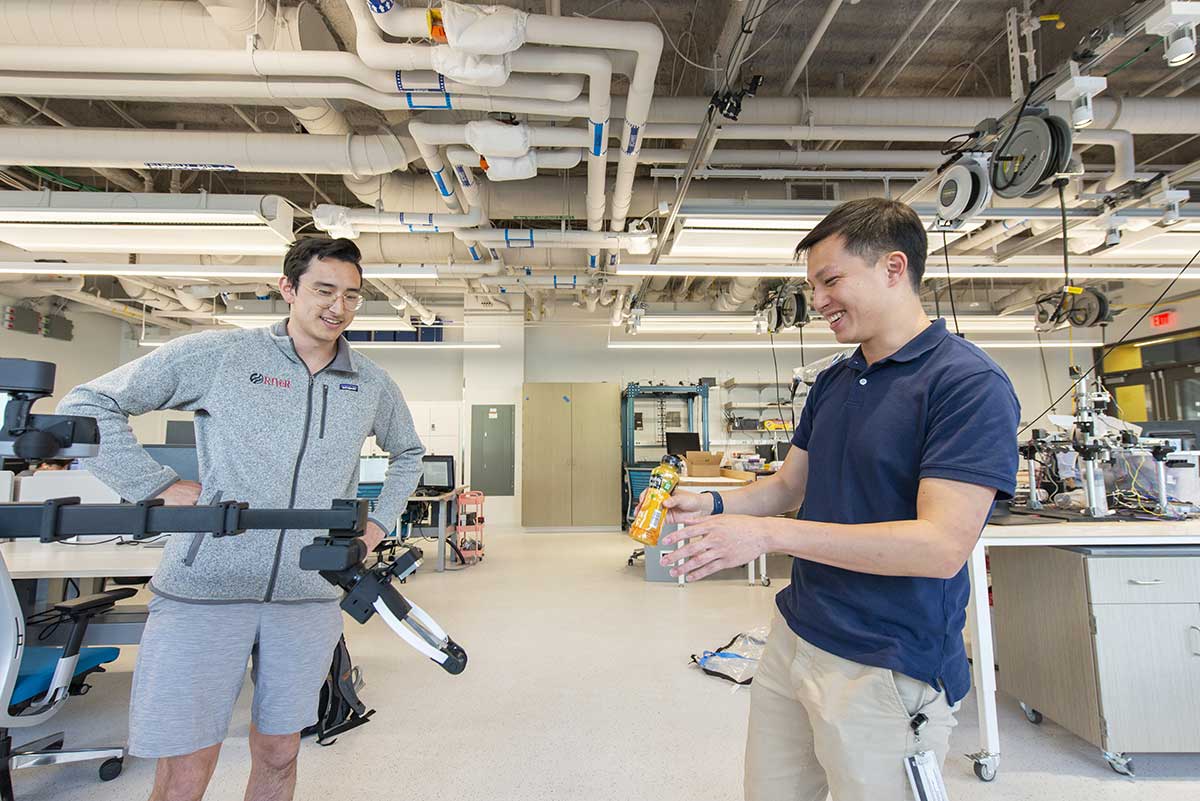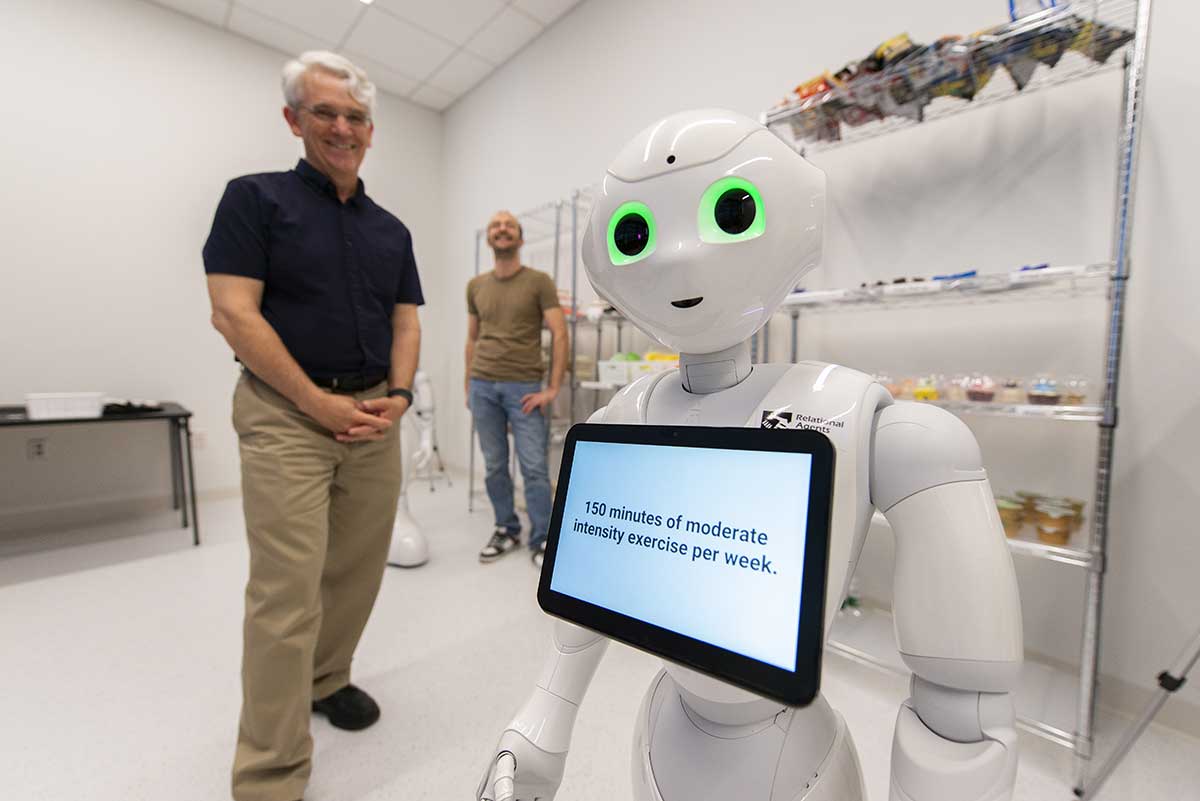
Machine Learning at Khoury College of Computer Sciences
Enabling computers to create knowledge from data in any discipline and at vast scales
The development of algorithms that work in ways inspired by the human brain has led to a revolution in how computers work. Machine learning helps computers gain knowledge and the ability to solve problems for which they were not explicitly programmed — for instance, processing visual information and understanding natural language. These approaches are revolutionizing what computers can do — even what they are.
Research in this area also takes in the human connection, asking questions about the implications of using computer learning approaches in specific contexts, such as health care, scientific discovery, robotics, and addressing cybercrime.


Empowering intelligent computer systems to autonomously solve tasks
Machine learning approaches have impacts both everyday and profound, driving the work of Khoury College researchers. Many recommendation engines that users encounter online are powered by machine learning, as are social media platforms, search engines, and journalism — with news stories written by computers ever more prevalent. Understanding how these programs work and the bias and privacy issues they can raise can provide policy and practice guidance.
Machine learning is revolutionizing health care through medical imaging analysis in which algorithms for analyzing medical test results promise to improve the speed and accuracy of things like tumor recognition.
These everyday impacts of machine learning are driving the work of Khoury College researchers, work that also includes improved predictions for weather, better real-time GPS services, and more secure financial networks through improved fraud detection.
Sample research areas
- Machine learning theory
- Deep learning
- Graphical models
- Learning-to-rank
- Semi-supervised learning
- Data mining
- Statistical pattern recognition
- Open source software
- Computer vision
- Image processing

Meet researcher Rob Platt
Rob Platt talks about his work in exploring machine learning models that is advancing the development of self-learning robots.

Current project highlights
Recent research publications
Boosting Multitask Learning on Graphs through Higher-Order Task Affinities
Authors: Dongyue Li, Haotian Ju, Aneesh Sharma, Hongyang R. Zhang
Khoury researchers and colleagues are researching how to improve how AI models learn to perform tasks with multiple steps (e.g., identifying communities in a social network). Traditional methods may fail due to complex relationships between tasks. Grouping tasks may allow models to learn more effectively and achieve better results.
Boundary-Aware Uncertainty for Feature Attribution Explainers
Authors: Davin Hill, Aria Masoomi, Max Torop, Sandesh Ghimire, Jennifer Dy
This research addresses the issue of unreliable explanations generated by AI models, particularly for complex decisions. Khoury researchers and colleagues are developing new methods, potentially providing a way to make AI’s reasoning easier to assess, leading to better AI tools for users.
Deep Bayesian Active Learning for Accelerating Stochastic Simulation
Authors: Dongxia Wu, Ruijia Niu, Matteo Chinazzi, Alessandro Vespignani, Yi-An Ma, Rose Yu
Complex simulations, for instance those that track infectious disease, can be very slow and resource intensive. This research aims to create faster and more focused ways to run such simulations by using deep learning approaches.
Related labs and groups
Faculty members
-
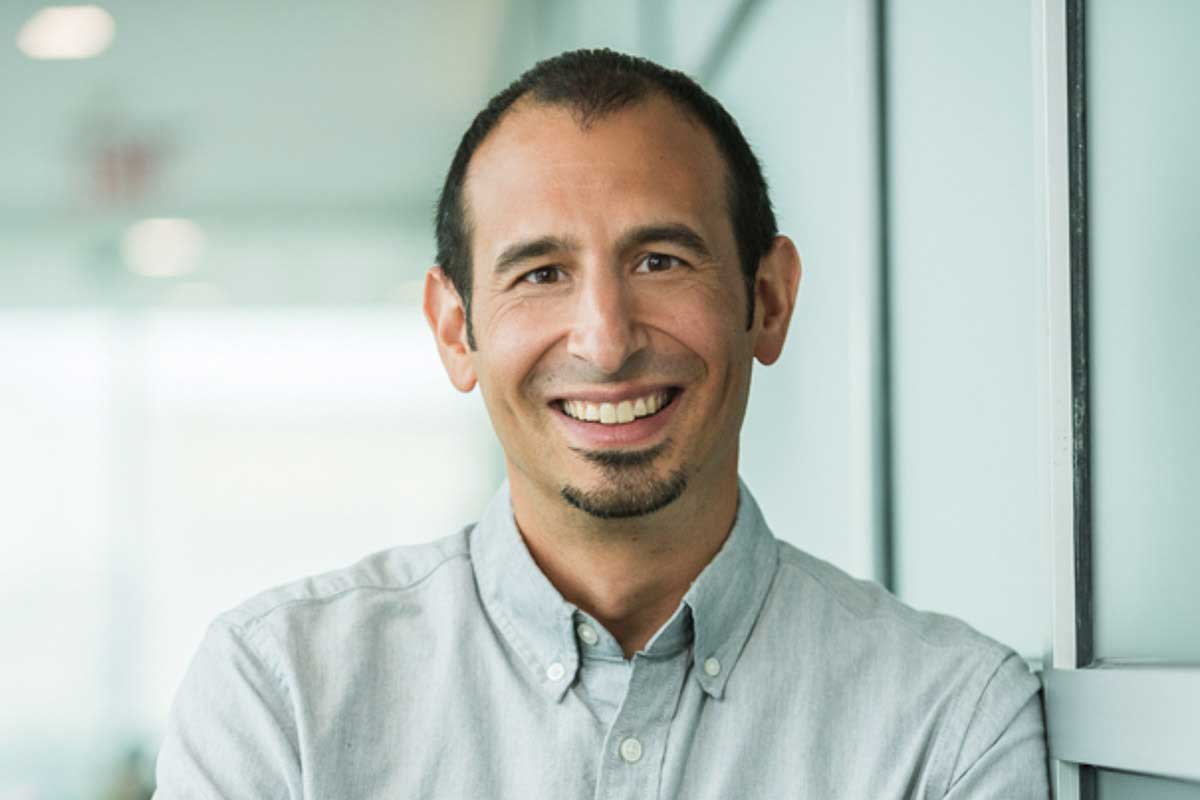
Christopher Amato
Christopher Amato is an associate professor at Khoury College and head of the Lab for Learning and Planning in Robotics. His research lies at the intersection of robotics, AI, and machine learning, including planning and reinforcement learning in partially observable and multi-agent/multi-robot systems.
-
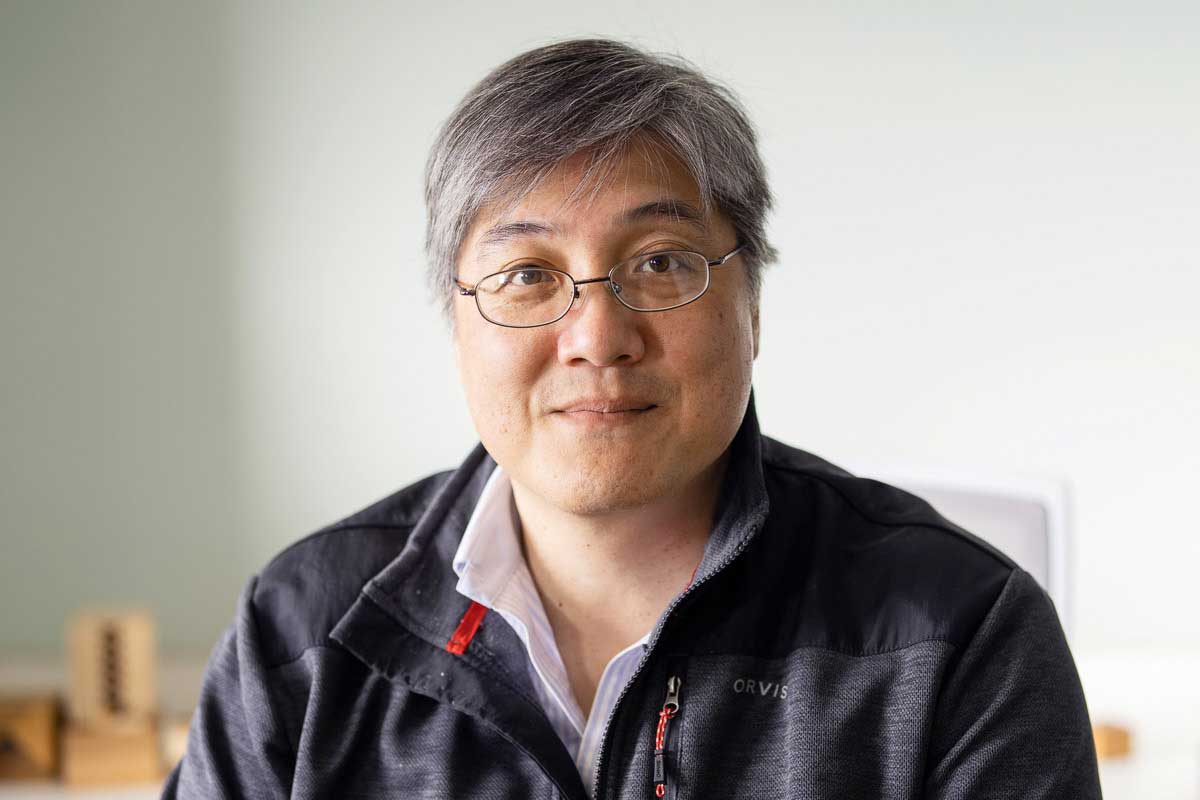
David Bau
David Bau is an assistant professor at Khoury College and the lead principal investigator of the National Deep Inference Fabric project. His research centers on human–computer interaction and machine learning, including the gap between the efficacy of AI and scientists’ ability to explain it.
-
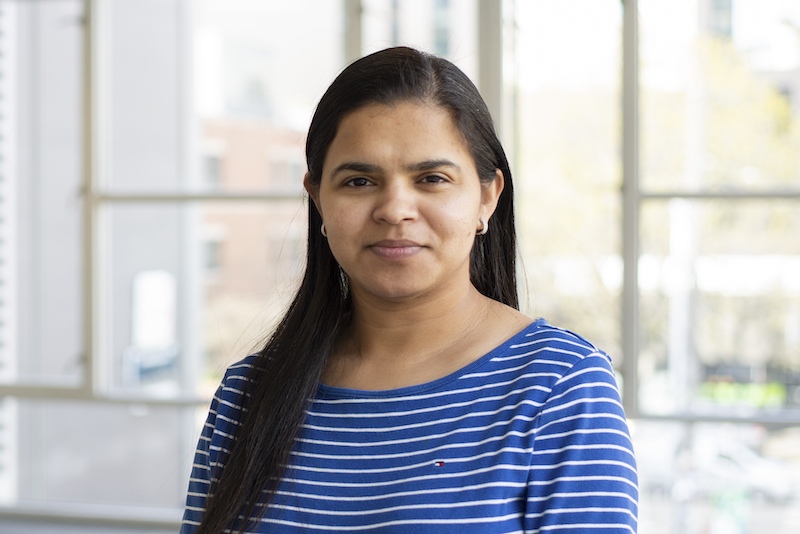
Divya Chaudhary
Divya Chaudhary is an assistant teaching professor at Khoury College. She teaches courses related to programming, data structures, cloud computing, and big data, and her research attempts to discover ways to optimize load scheduling in the cloud to reduce computational costs.
-
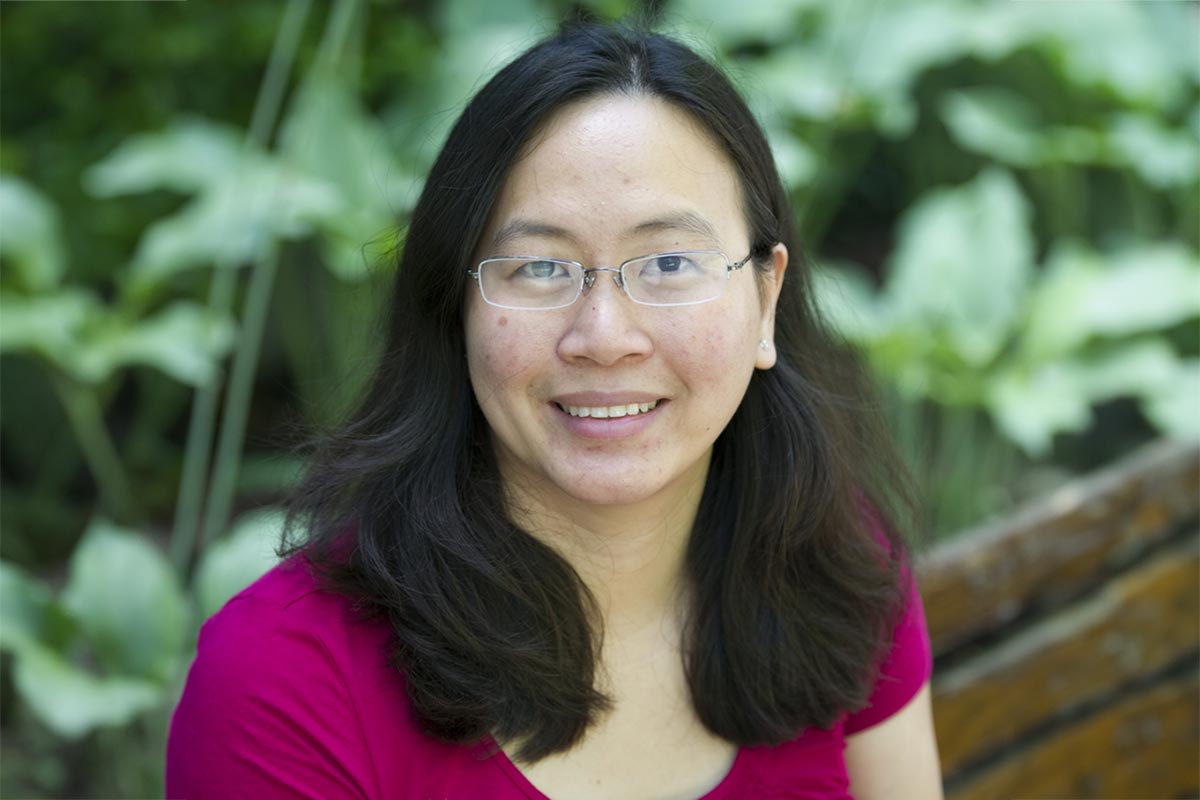
Jennifer Dy
Jennifer Dy is an associate professor in the College of Engineering, with a courtesy Khoury College appointment. Her research explores machine learning, data mining, statistical pattern recognition, and computer vision.
-
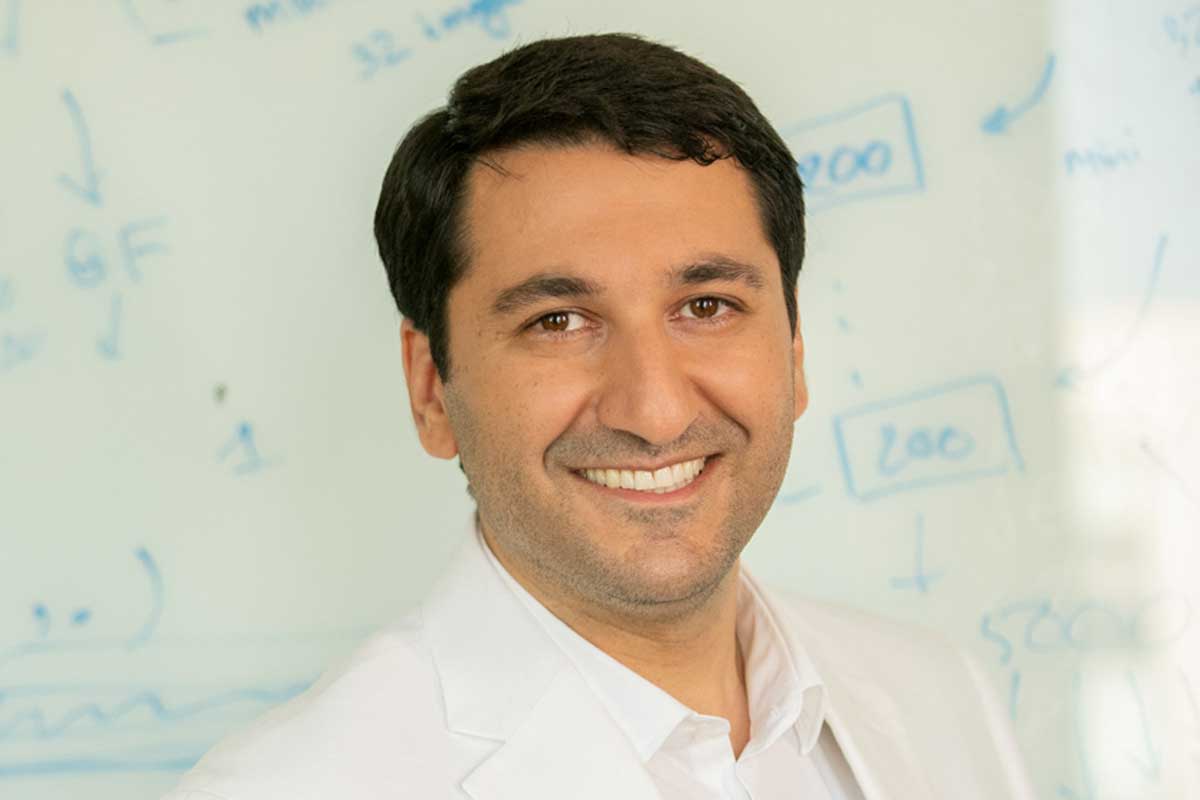
Ehsan Elhamifar
Ehsan Elhamifar is an associate professor at Khoury College, affiliated with the College of Engineering. The overarching goal of his research is to develop AI that learns from and makes inferences about visual data analogous to humans.
-
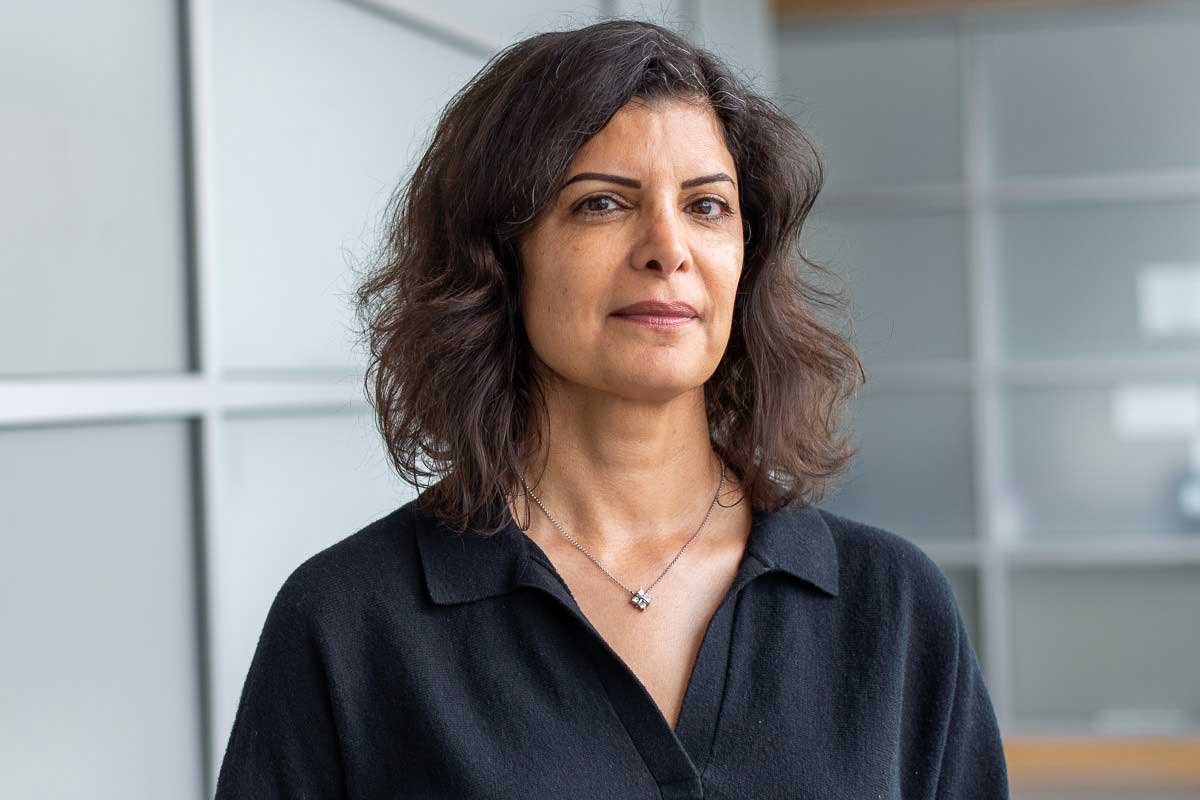
Tina Eliassi-Rad
Tina Eliassi-Rad is the inaugural Joseph E. Aoun professor at Khoury College, as well as an external faculty member at the Santa Fe Institute and the Vermont Complex Systems Center. Her research at the intersection of data mining, machine learning, and network science has earned her a place as a core faculty member at both Northeastern’s Network Science Institute, and the Institute for Experiential AI.
-
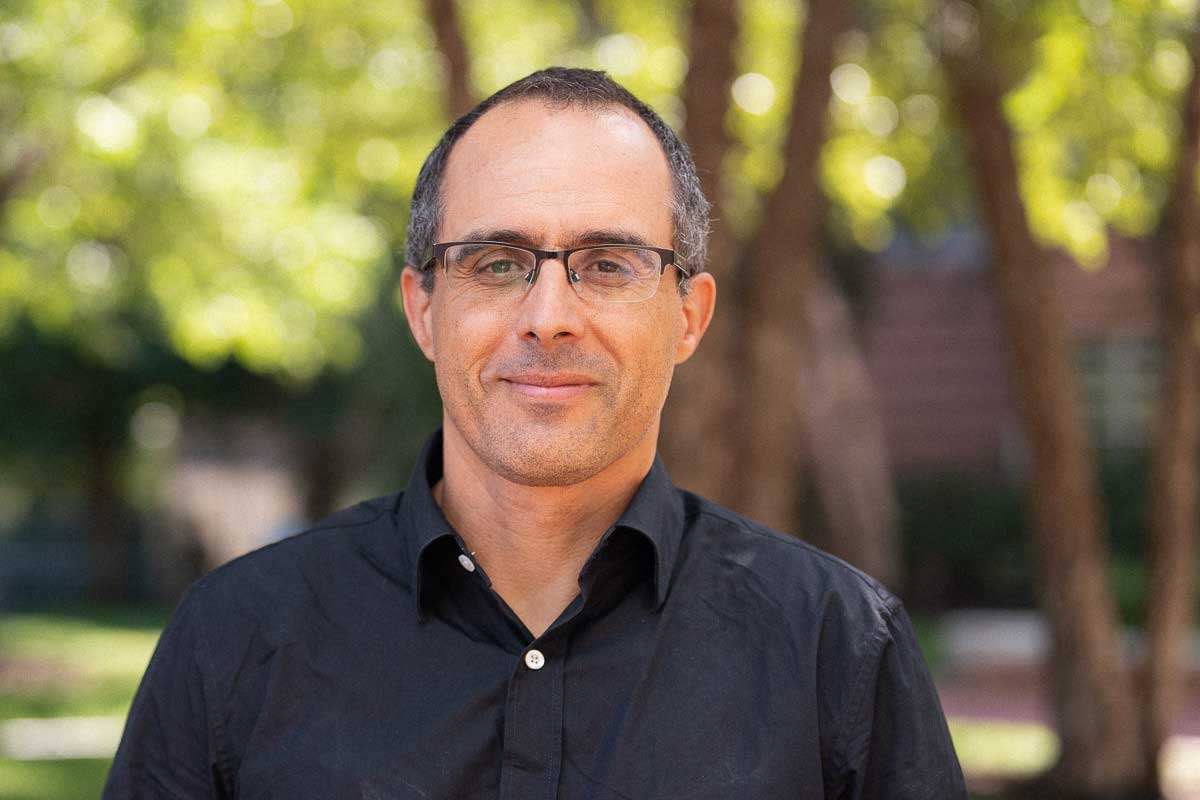
Miguel Fuentes-Cabrera
Miguel Fuentes-Cabrera is an associate teaching professor in the Khoury College of Computer Sciences at Northeastern University, based in Oakland. Before joining Khoury College in 2023, Fuentes-Cabrera built his research career at the Oak Ridge National Laboratory in Tennessee, where he used computational physics techniques to investigate nanomaterials.
-
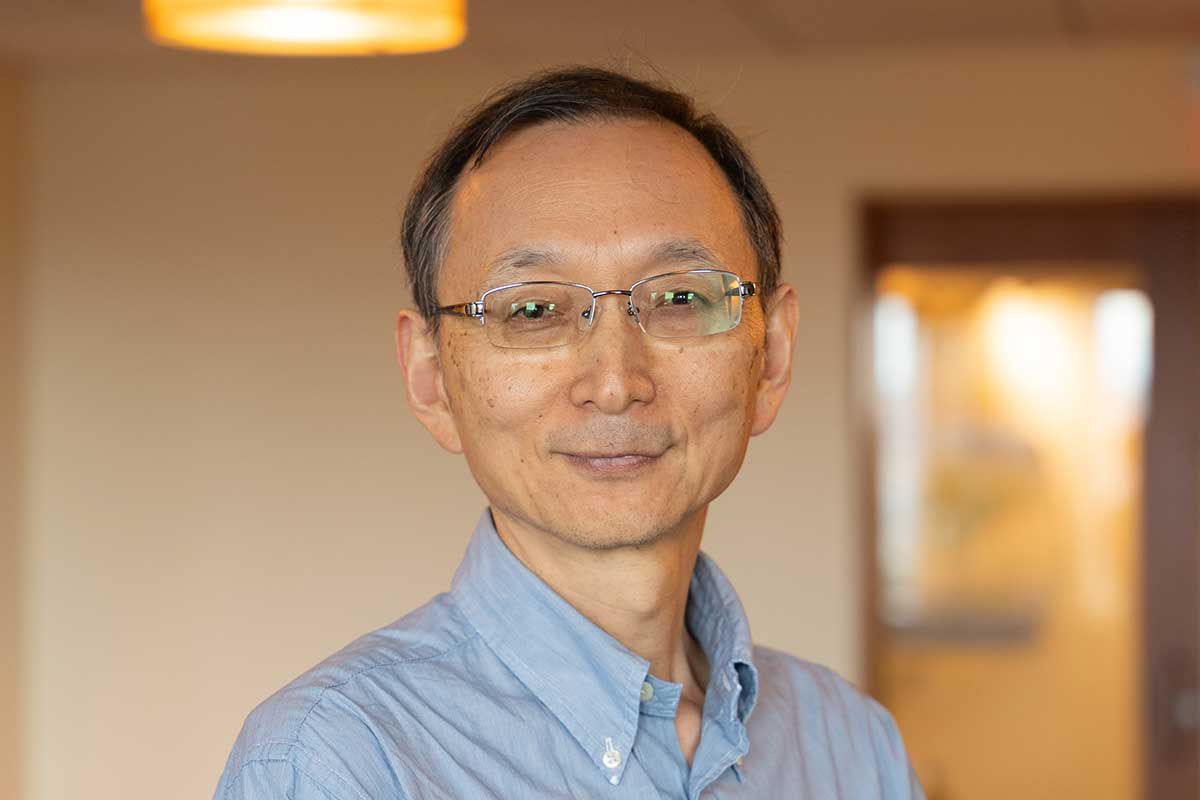
Yifan Hu
Yifan Hu is a professor of the practice at Khoury College. He researches the interdisciplinary intersections of information visualization, AI, machine learning, and natural language processing, questions to quick he brings three decades of industry experience.
-
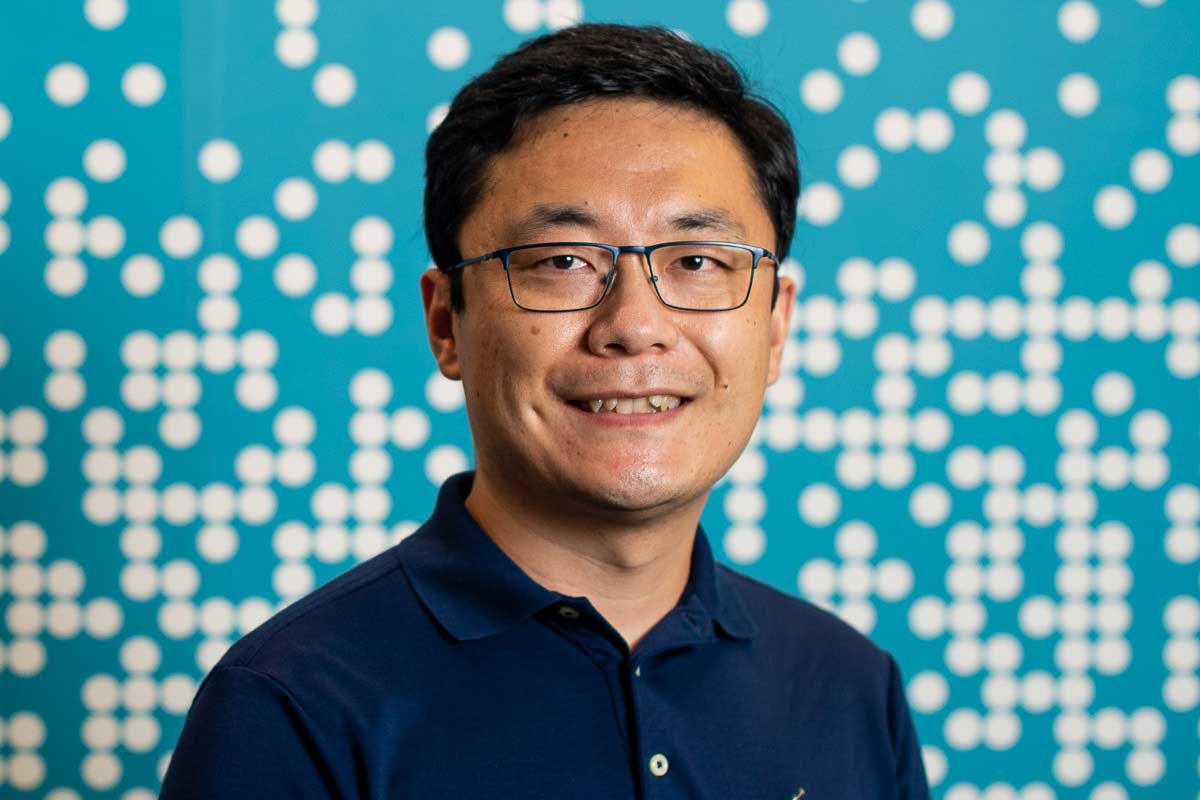
Huaizu Jiang
Huaizu Jiang is an assistant professor at Khoury College. His research interests include computer vision, computational photography, machine learning, AI, and natural language processing.
-
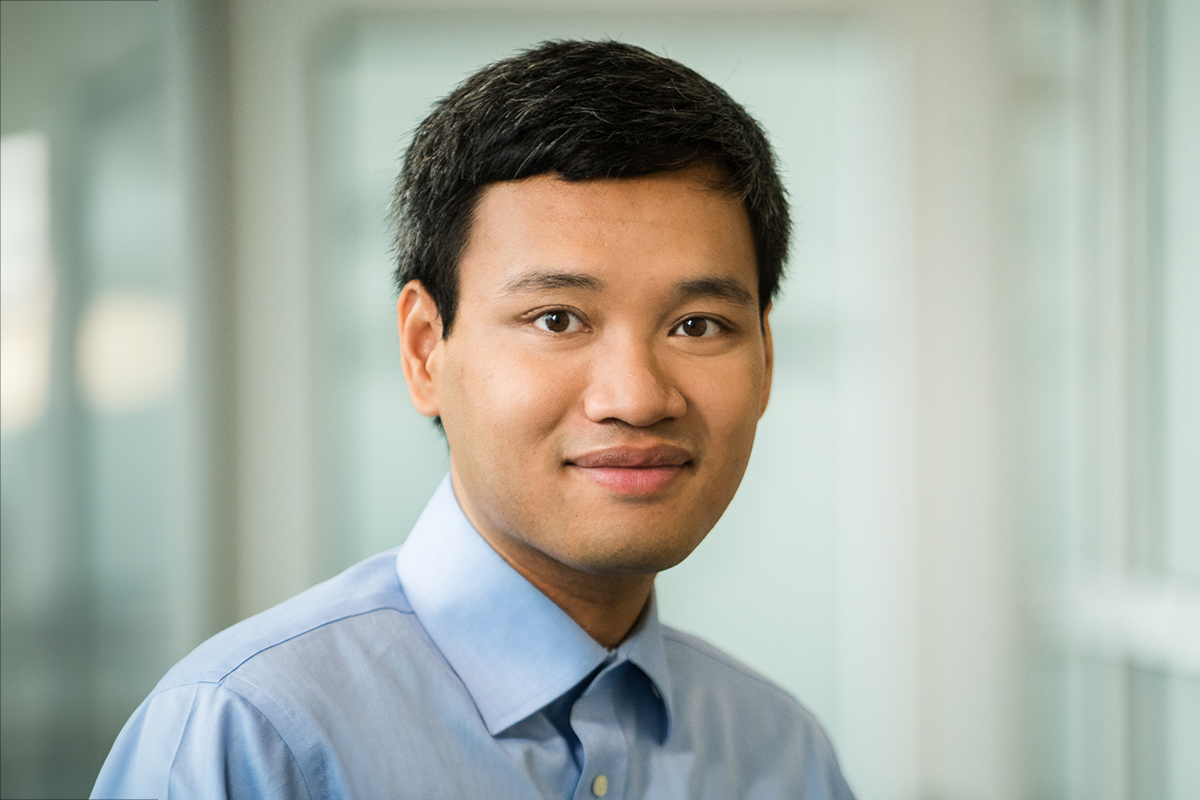
Huy Lê Nguyen
Huy Lê Nguyen is an associate professor at Khoury College. He researches the design and analysis of algorithms, with an emphasis on algorithmic techniques for machine learning and massive data sets.
-
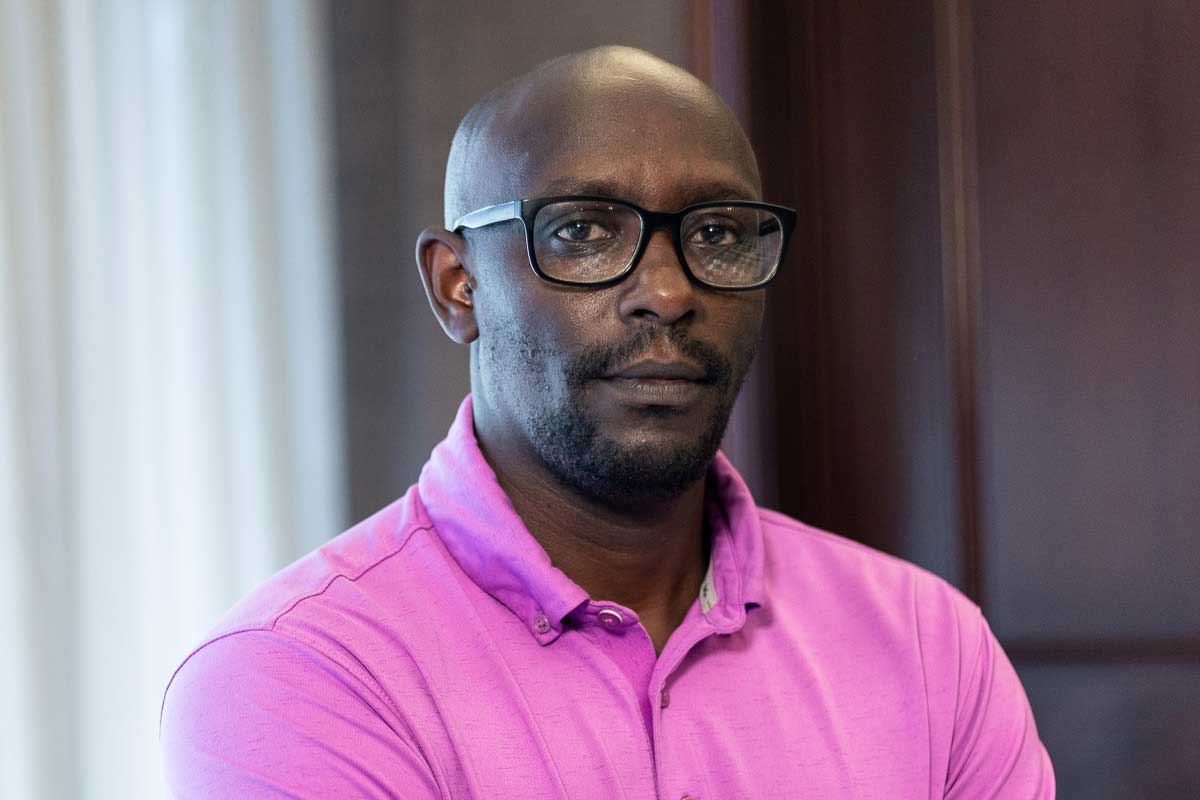
Jonathan Mwaura
Jonathan Mwaura is an associate teaching professor at Khoury College. He teaches courses in introductory mathematics, algorithms, AI, and machine learning.
-
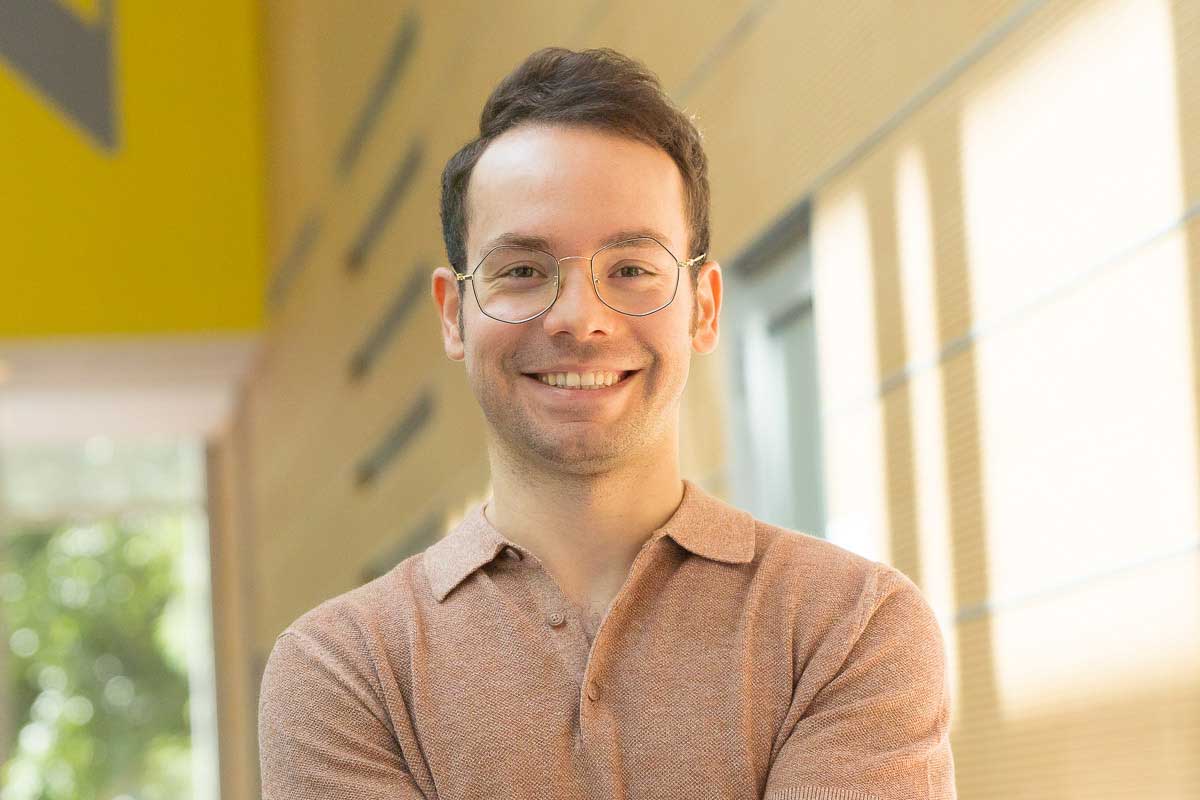
Ryan M. Rad
Ryan Rad is an assistant teaching professor at Khoury College with backgrounds in teaching, research, engineering, and management. He has founded two companies in the last decade and is currently active in computational biology, machine learning, and personal health informatics research.
-
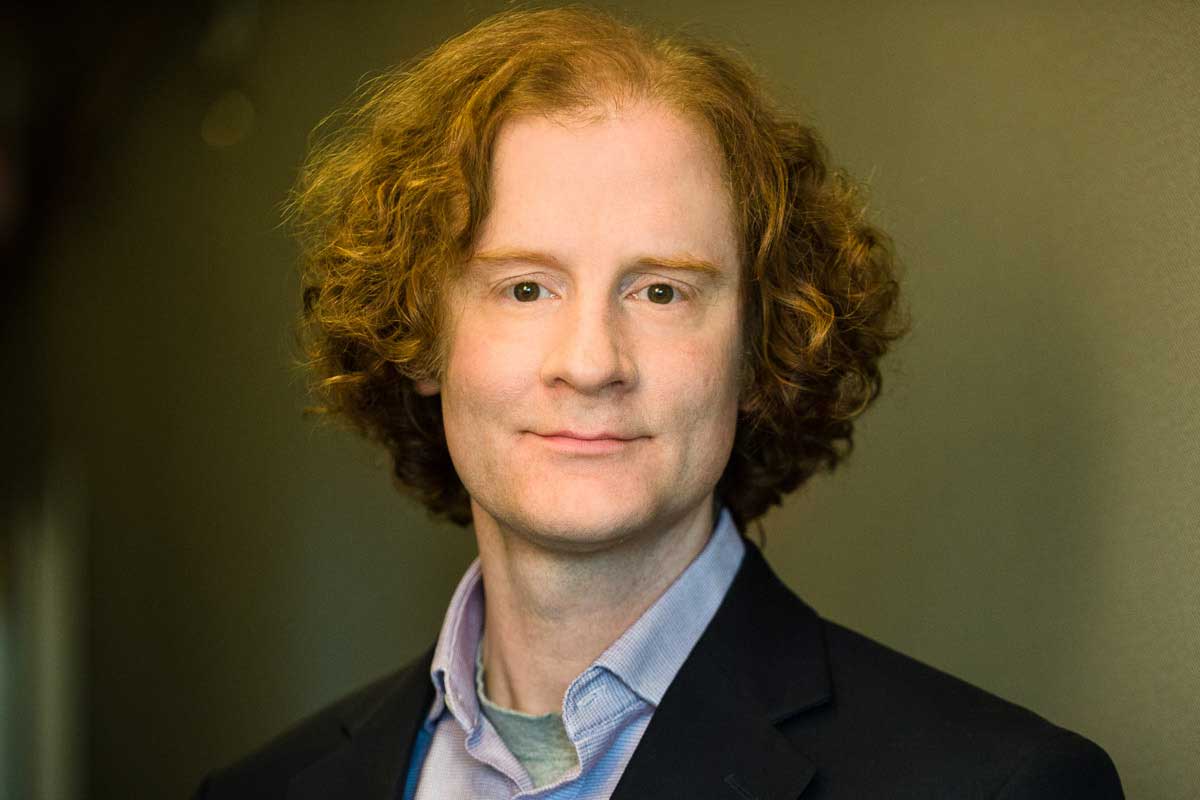
David Smith
David Smith is an associate professor at Khoury College. His research spans the fields of natural language processing, computational linguistics, information retrieval, machine learning, digital libraries, digital humanities, and political science.
-
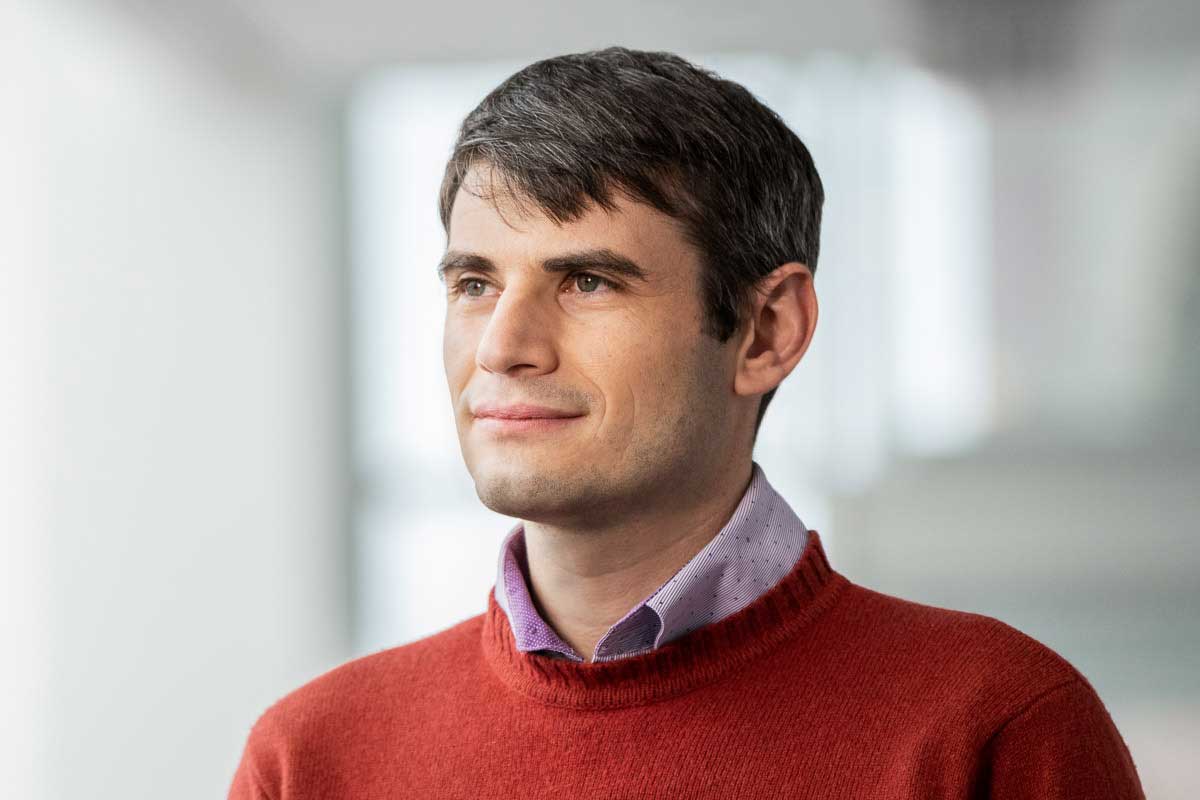
Robin Walters
Robin Walters is an assistant professor at Khoury College. He leads the Geometric Learning Lab, where his research explores the role symmetry can play in developing data-efficient, trustworthy deep learning models.
-
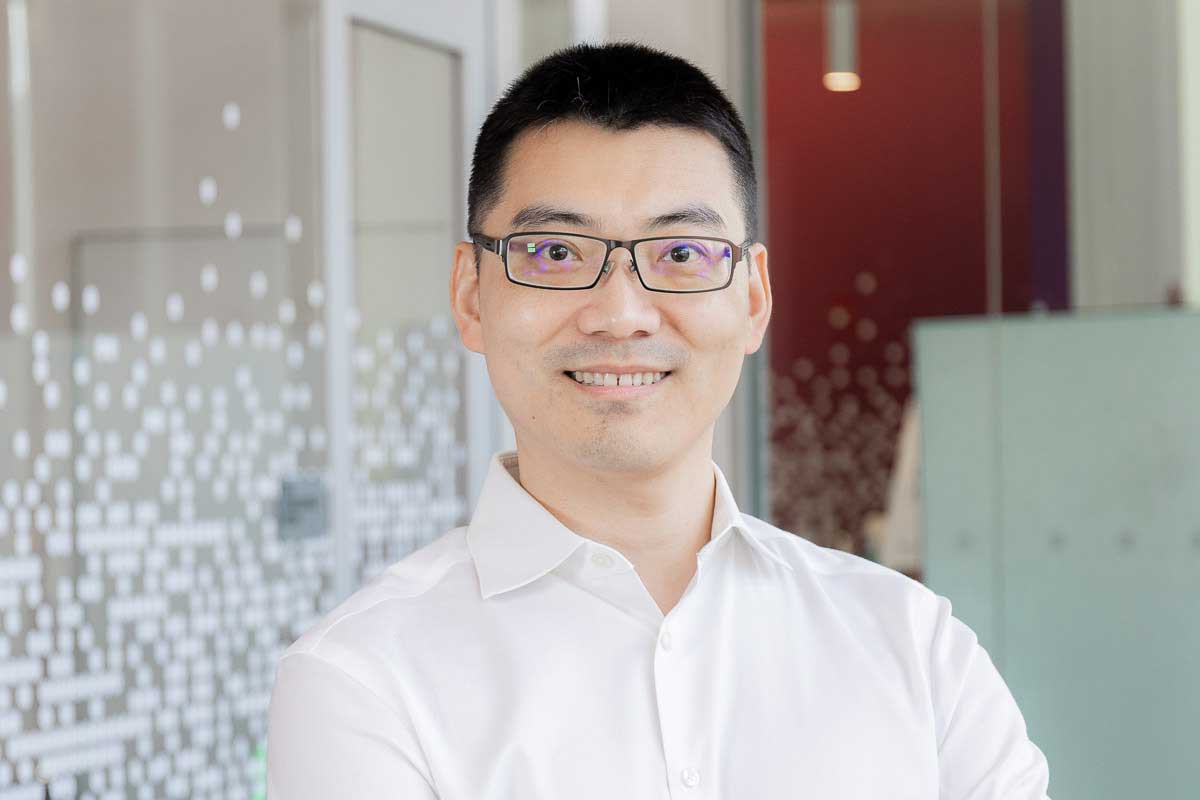
Dakuo Wang
Dakuo Wang is an associate professor at Khoury College. He is also an ACM Distinguished Speaker and gives talks around the world on his research into human-centered AI (HCAI) systems.
-
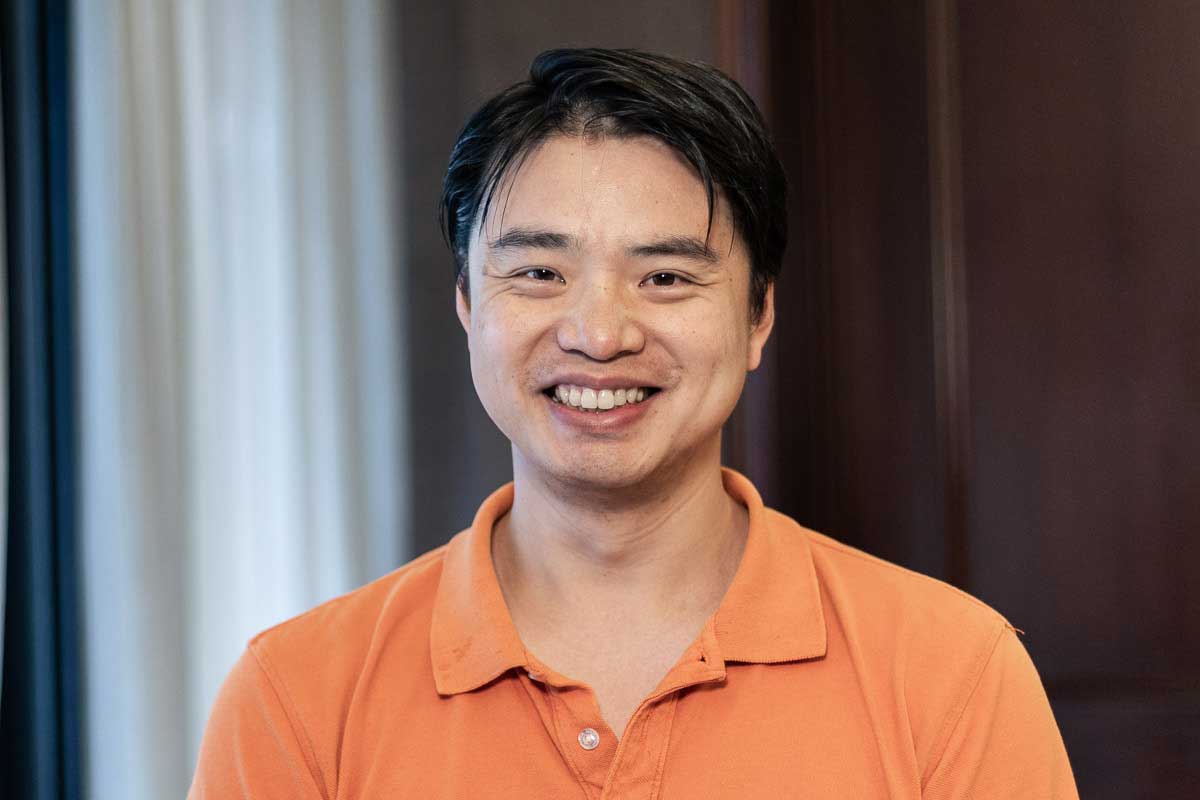
Chieh Wu
Chieh Wu is an assistant teaching professor at Khoury College. A prolific machine learning scholar and a specialist in kernel methods, Wu strives to blend those areas with biology, and to discover a unifying mathematical theory for neural networks.
-
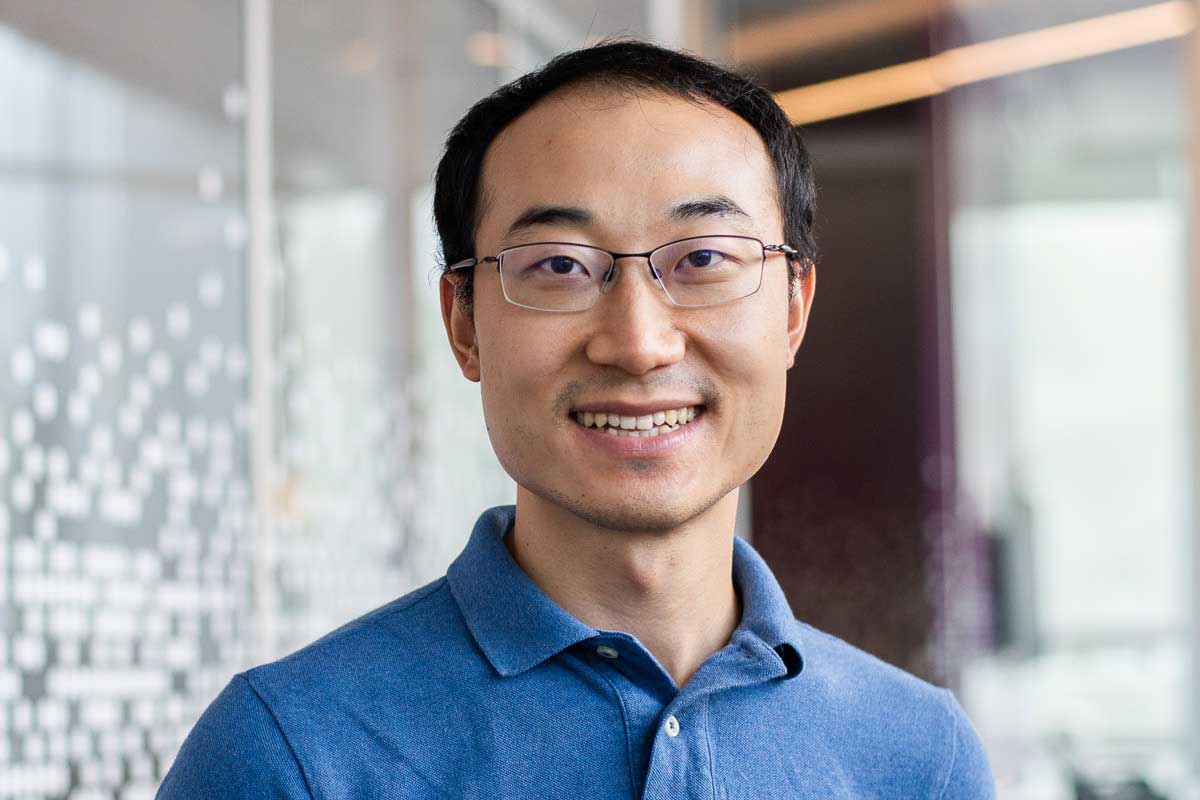
Hongyang Zhang
Hongyang Zhang is an assistant professor at Khoury College. He researches at the nexus of machine learning, algorithms, and statistics, and has helped to develop techniques for neural networks, data augmentation, and transfer learning.

